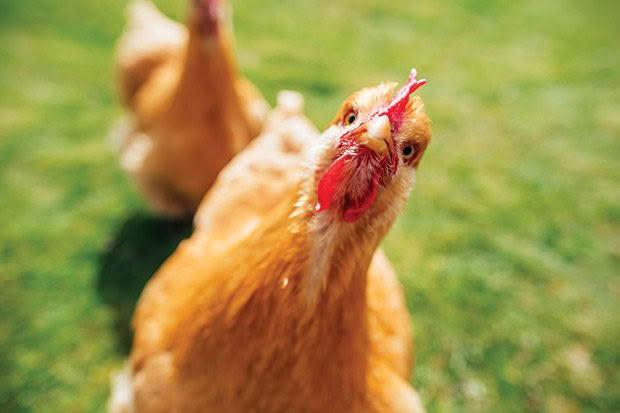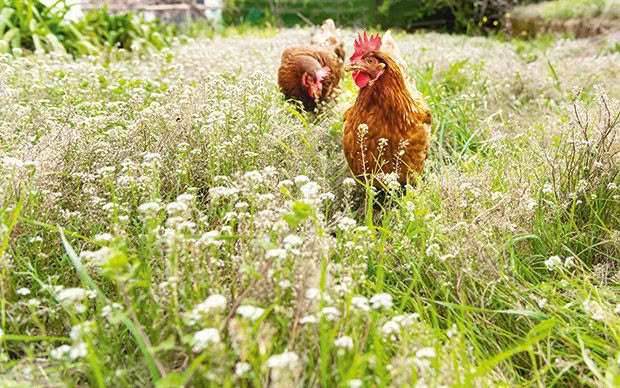Should you believe what a chicken ‘expert’ is telling you?

Navigate the plethora of suggestions and pick out what’s right and wrong for your chooks.
Words: Nadene Hall
Who: Dr Maurice Pitesky, DVM
Where: University of California, Agriculture and Natural Resources
Web: ucanr.edu/sites/poultry/
Source: blogtalkradio.com
Karen from Auckland says she’s never wormed her hens, but she feeds them raw garlic and it keeps them worm-free.
Brad from the Wairarapa tells everyone he’s never worn a dust mask or respirator while cleaning a coop in the 30 years he’s owned chickens, and nothing has ever happened to him.
They sound convincing. They write emphatic posts on social media or on their long-running poultry blog.
Online information and support are two excellent resources when you’re learning to care for poultry, but it can be hard to know whether to trust people like Karen and Brad.
Dr Maurice Pitesky is a US vet and researcher who specialises in poultry disease and health. These are his tips for checking the scientific efficacy – or lack thereof – of information you hear or read online.
Beware of simple answers
Most importantly, Dr Pitesky says watch out for what he calls black and white statements.
“If someone says something like ‘apple cider vinegar works against coccidiosis’, that is a very simple answer. There are nine species of coccidia and even the best medical treatments we have don’t treat all nine.
“If they give you a complex answer and references, it’s possible we’re probably talking about something realistic.”
Be skeptical of an anecdotal source
Scientists use the scientific method to test a hypothesis, which includes:
• making observations;
• taking measurements;
• conducting experiments.
“I was at a poultry presentation where it had a list of simple answers to health issues. It’s really important to be sceptical of that, even if you hear someone who’s a good speaker, they’re authoritative, they’re funny, they’re confident, they may have even written a book or two. It doesn’t mean they know what they’re talking about. It’s on you to vet it, and you can do it yourself.”

If a person says their findings are based on their personal experience, you need to ask questions.
“If they say apple cider vinegar works against coccidiosis, you’d want to know:
• do they know what type of coccidia they were treating?
• what breed (of poultry) was it?
• what tests did they use to see if they were successfully treated?
• were they only looking at clinical signs?
“If their answer is curt and they’ll only say, ‘I have 30 years of experience’, that’s not a reasonable science-based answer.”
When scientists produce research papers, and then write an article, it’s peer-reviewed. This means independent experts take time to check every aspect of it.
“If I send something to a scientific journal, they don’t just publish it. They send the article to three other experts in the same field who you don’t know – or if you do, they won’t tell you they’re reviewing it – and they vet it, check it. If they agree with what I’ve written, then the article will be published. Compared to something (anecdotal) written on the internet, it’s a completely different level of vetting.”
Look for more than one study
When scientists do a study, funding is always limited, so they only answer one or two specific questions. You want to find multiple recent studies proving something has worked.
“You might find an article saying that E. coli can be treated (with this ingredient). Are there 5-10 papers recently that have looked at the topic? Is it an article from the 80s or 90s? More recent literature might say a different thing.
“Science gets things wrong all the time, but usually, it gets caught eventually. And I want to know under what conditions it works – that’s where science comes in.”
It’s only recently (in the last 10-15 years) that it has been possible for scientists to publish negative results. In previous decades, if an experiment showed something didn’t work, it wasn’t published.
“Now there are journals that specifically publish negative results. If something doesn’t work, say a medication to treat coccidiosis, you want to see those results because they’re just as important as positive ones.”
Don’t be put off by the scientific jargon
Reading scientific papers can be daunting, even for someone like Maurice, who works in research at a prestigious university and has 25 years of experience.
“When I read papers, I can barely understand some of them sometimes,” says Dr Pitesky. “They’re often hard to read. There’s nothing wrong with reaching out to ask or email the study’s author to clarify the results. Scientists love talking about research – if you ask a question about a paper, they will talk your ear off and be so happy that someone paid attention to their study.”
How scientists look at ‘new’ fads

A simple cure often gets ‘stuck’ on the internet, says Dr Pitesky.
“People start repeating it, and there’s an echo chamber effect.”
But when you put it under scrutiny, a fad can quickly fail to meet basic scientific principles.
If a scientist wants to do a study, they must show its ‘mode of action’. For example, to increase egg production in poultry, research shows broadly, the modes of action are:
• light levels in the environment;
• energy and protein levels in feed;
• calcium, phosphorous, and macro minerals in feed.
“One thing I’ve heard about recently is the idea of red pepper flakes increasing egg production in winter. You can’t just ask for a $100,000 grant to do a study on red pepper flakes’ effect on egg production – I’d have to show a mode of action. What is it in red pepper flakes that would cause an increase in egg production?
“If I look on Google Scholar, PubMed, the Web of Knowledge, all these different databases of scientific articles, I can’t find any evidence about (an active ingredient in) red pepper flakes. I also can’t see any mode of action from what we know about red pepper flakes that would be consistent with increasing light, or energy, protein, calcium or phosphorous.”
Love this story? Subscribe now!
 This article first appeared in NZ Lifestyle Block Magazine.
This article first appeared in NZ Lifestyle Block Magazine.
